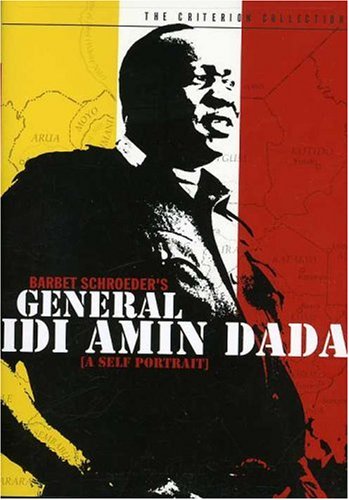This documentary is unique in its approach because it provides what director Barbet Schroeder calls a self portrait of one of the most interesting leaders in modern times, Uganda’s Idi Amin.
It shows how disarmingly charming Amin was. In fact it is hard to reconcile the almost childlike behavior of Amin with the fact that he was responsible for as many as 500,000 deaths while dictator.
[kml_flashembed movie="http://www.youtube.com/v/sBLSU2DIY80" width="425" height="350" wmode="transparent" /]
In one scene he upbraids his foreign minister for not portraying Uganda well in the world press in a comfortable and easygoing tone. That minister’s body is discovered in the Nile two weeks later.
Schroeder, who was interviewed in 2001 as part of the re-release of the film on DVD, wonders aloud if his film had anything to do with the events that happened in Entebbe two years after “General Idi Amin Dada” was shown.
In the documentary, Amin said he would welcome Palestinians who come to his country. In 1976, Palestinians hijacked an Air France plane leaving Tel Aviv and sought refuge in the airport at Entebbe, Uganda. Israeli commandos stormed the airport and rescued most of the 250 hostages.
Amin was a complicated man with provocative views on world affairs, like his hatred of Israel. He also claimed to be an adherent to the philosophy of the nonaligned movement during the Cold War.

The DVD also has an interesting timeline about Uganda which ends in 2001. In 2003, Amin died in Saudi Arabia where he had lived since he fled Libya in 1981. He had moved to Libya in 1979 after bumbling the war with Tanzania.
This documentary is excellent in the way it allows the viewer into the presence of one of the worst human rights offenders the world has ever seen.
“General Idi Amin Dada” is now available on DVD.
Murphy can be reached at [email protected]